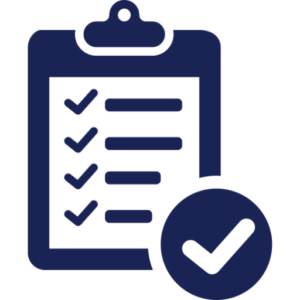STTA Online Teacher Training Program
OBJECTIVE
Good preschool teachers are highly in demand across the world to make the right impact in the early years of children
Mothers and girls across India are unable to learn from the best in the industry due to their location constraints and household responsibilities
STTA aims at providing an online platform for women to learn and become certified preschool teachers from the convenience of their homes
STTA online is for you if you are…
Teaching
Passionate about teaching & learning
Flexibility
Looking for flexible working hours with huge job satisfaction
Restart
Looking at restarting your career after a break or change your field
Personal Growth
Want to learn about teaching for the betterment of your child
Application
Apply online through our website
Fill in the application form + registration fee
Enrollment
Make the fee payment online of first installment
Receive the book sets
Course Structure
Learning through books, online lectures & resource links
Expert lectures online/webinar
Assessment
1 PROJECT/SUBJECT
2 ASSIGNMENTS/SUBJECT
1 FINAL THEORY EXAM
Graduation
Course certificate with grades based on performance in assessments and projects
 Module- Teaching the Montessori Way
Module- Teaching the Montessori Way
This module talks about various aspects of Montessori way of teaching.
It discusses at length Dr. Maria Montessori’s life and philosophy in the context of early childhood education.
Some of the key areas of focus are nuances of Montessori Method, Role of a Directress, Preparing a Montessori Classroom, Five areas of Montessori Method- Exercises of Practical Life, Exercises of Sensory Development, Language, Culture and Math.
Module I - History of Early Childhood Education
 The earliest formal documentation of preschool education, as an organized initiative in India, dates back to the latter half of the nineteenth century, when Gijubhai Badheka and Tarabai Modak among others, became the pioneers of this movement in the country.
The earliest formal documentation of preschool education, as an organized initiative in India, dates back to the latter half of the nineteenth century, when Gijubhai Badheka and Tarabai Modak among others, became the pioneers of this movement in the country.
The course content of this paper helps the student to understand the importance of Early Childhood Education in India from the historical perspective and also discusses the role of agencies that brought about a change in Education in India.
The importance of childhood development along with research, have steered the evolution of programs for children from just ‘Preschool Education’ to the concept of more integrated and holistic Early Childhood Development programs.
Module II - Principles of Child Development
 Child development refers to how a child becomes able to do more complex things as they get older. Child development study explores how a child develops from birth to age eight from all perspectives: physical/motor, cognitive, social, emotional, and language. Here, the focus is on how development occurs within the context of family, community, culture, and relationships.
Child development refers to how a child becomes able to do more complex things as they get older. Child development study explores how a child develops from birth to age eight from all perspectives: physical/motor, cognitive, social, emotional, and language. Here, the focus is on how development occurs within the context of family, community, culture, and relationships.
Evidence tells us that a person’s life successes, health and emotional wellbeing have their roots in early childhood. Both nature and nurture (genes and environment) influence children’s development. The quality of a child’s earliest environments and the availability of appropriate experiences at the right stages of development are crucial determinants of the way each child’s brain architecture develops.
Module III - Preschool Organization Management and Record Documentation
 Organization and Record Documentation and record keeping are important to ensure accountability, facilitate coordination of care between providers and for service improvement.
Organization and Record Documentation and record keeping are important to ensure accountability, facilitate coordination of care between providers and for service improvement.
In order to be efficient in maintaining a preschool, it becomes essential for a preschool teacher to establish and maintain school records.
It is essential for every teacher to have an insight into the management of a preschool.
Through this module students will learn about the different preschool records that one needs to maintain along with management skills that the teachers need to develop in order to be able to manage a preschool.
Module IV - Curriculum and Pedagogy in Early Childhood Education
 The aim of curriculum is to provide a structure and educational directions to teachers in their work of supporting the development of capacities and skills, while respecting the child’s interest and choices.
The aim of curriculum is to provide a structure and educational directions to teachers in their work of supporting the development of capacities and skills, while respecting the child’s interest and choices.
More precisely pedagogy can be described as a curriculum, because what matters is how things are taught, rather than what is taught.
In this paper students will be learning about different approaches of Early Childhood Education and understand its implications in Education practices.
Students will be informed about the various teaching methods that the Educationists have put forward and compare the same to understand the benefits of each practice.
Module V - Food and Nutrition for Young Children
 Good health is defined as the physical, intellectual and psychological well being of a person. A healthy child is one who can cope with the environment in a manner appropriate for the child’s age group, and, therefore displays physical, mental and emotional balance.
Good health is defined as the physical, intellectual and psychological well being of a person. A healthy child is one who can cope with the environment in a manner appropriate for the child’s age group, and, therefore displays physical, mental and emotional balance.
This unit will help the student enhance his/her knowledge about the nutrients needed by a child along with developing knowledge about planning a balanced diet for growing children.

 Apply for Admission
Apply for Admission